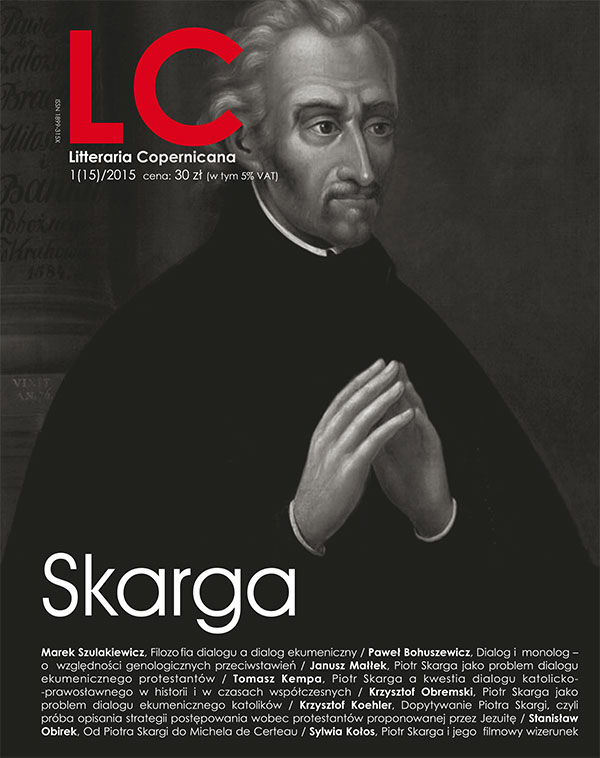Piotr Skarga and the issue of the Catholic-Orthodox dialogue in the history and the modern times
DOI:
https://doi.org/10.12775/LC.2015.004Keywords
Skarga, the Jesuits, the Union of Brest, ecumenical dialogueAbstract
Piotr Skarga should be considered one of the main contributors to the Union of Brest (in 1595/1596), which led to subordination to the Pope of the Orthodox Metropolis of Kiev, including the lands of the Polish-Lithuanian Commonwealth. The Jesuit’s book „O jedności Kościoła Bożego...” („About the Unity of the Church of God...”, first issued in 1577, then in 1590) was ideological impulse to conclude the Union. Skarga put the entire blame for the great schism (in 1054) on the Orthodox side, blaming Orthodox hierarchs for a departure from the true faith and also criticizing some of the customs of the Orthodox Church in the Ruthenian lands. His book provoked a negative reaction of the Orthodox people in the Commonwealth, which was aggravated by inclusion of the Union. By his works Skarga gave the arguments to followers of the Union of Brest. The opposing party replied by issuing polemical works by Marcin Broniewski (the Czech Brethren writing in the name of the Orthodox people), Meletius Smotryckyj and others. In the second half of XX century, according to the development of the ecumenical dialogue between Catholic and Orthodox Church, Skarga’s views on the unity of Christianity have become outdated. Jesuit’s religious exclusivism was replaced in the Catholic teachings by the truth about the coexistence of Sister Churches. For this reason, although Catholic theologians and priests continue to emphasize the Skarga’s role as the co-founder of the Union of Brest, they no longer expose his views on unity. Therefore, the Jesuit’s teaching does not raise any particular excitement among the Orthodox, but their opinion about Skarga’s religious views must remain definitely negative.
Downloads
Published
How to Cite
Issue
Section
Stats
Number of views and downloads: 602
Number of citations: 0



